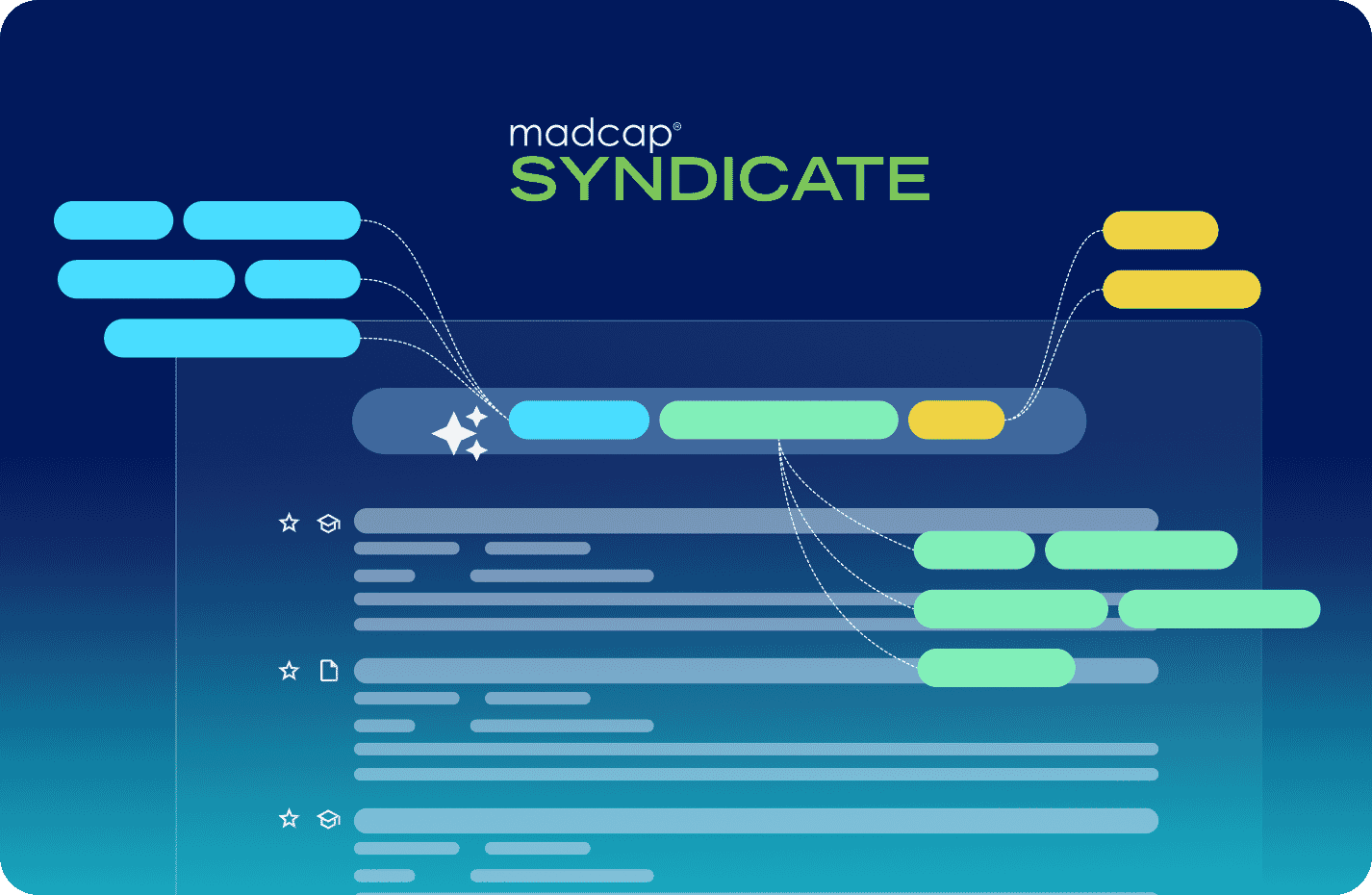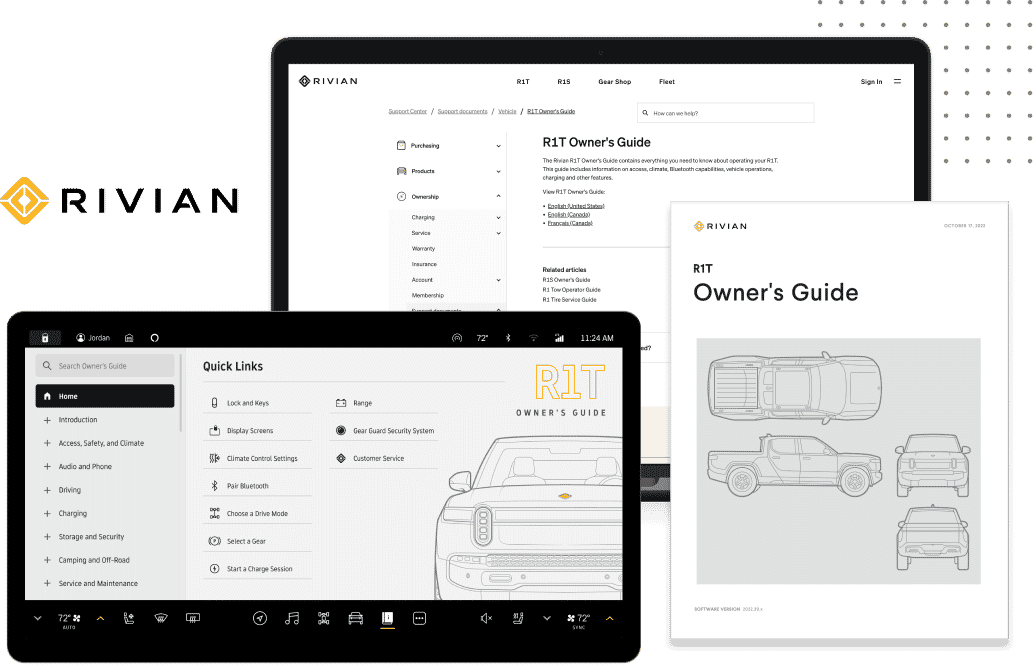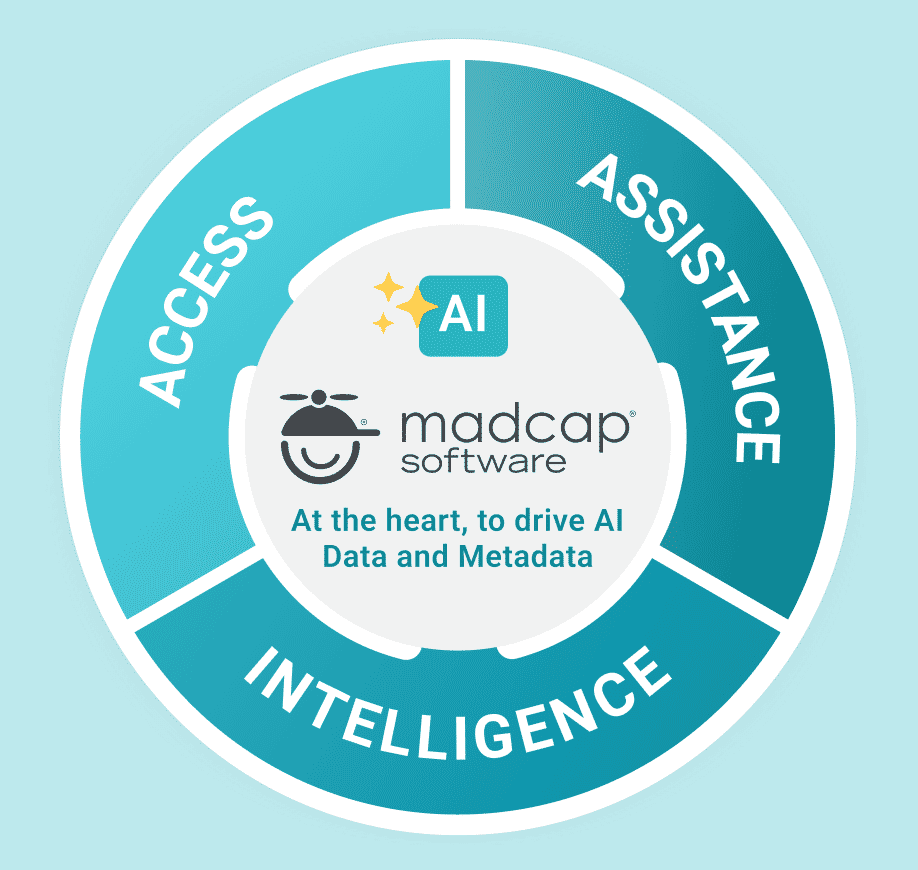What is DITA, anyway?
Have you ever dug through a 60-page PDF just to find a single comment? Do most of your documentation updates involve copy-pasting across dozens of files? If so, DITA (Darwin Information Typing Architecture) could be your solution.
What is DITA and how can it help me?
What is DITA?
DITA XML is the best way for businesses to publish smart and captivating technical content. DITA stands for Darwin Information Type Architecture, and is a generic and adaptable XML-based open standard to manage, create, and publish content. Defined and maintained by the OASIS DITA Technical Committee, DITA XML uses topics, maps, and output formats to generate technical documents. Simply put: it helps companies streamline technical writing and documentation processes.
Why go with a structured content standard?
DITA’s structured approach offers major advantages:
- Consistency across all documentation
- Content reuse across multiple deliverables and languages
- Multi-channel publishing from a single source
- Future-proofing for formats and platforms not yet imagined
Since DITA uses semantic tags, content can be styled differently depending on output needs — without changing the source. For example, a glossary term might appear bolded in print but styled differently in a mobile app, all from the same original file.
Topics and Maps
Each DITA “topic” is a stand-alone unit of information — like a task, concept, or reference. You can define your structure using prebuilt types like:
- Task – step-by-step procedures
- Concept – background or overview info
- Reference – structured, factual data
- Glossary – definitions of terms
- Learning – content for training (e.g., Learning Objectives, Assessments)
You then assemble these topics using maps and bookmaps — files that define the hierarchy and structure for deliverables. This allows you to build everything from product manuals to training courses without rewriting the same information.
Maximum Content Reuse
Within DITA, each piece of content represents a unique XML file. The XML-based open standard allows for maximum content reuse across multiple platforms, including tablets, mobile phones, and desktops. Unlike a Word document, where content simply exists (like a rock), DITA content is dynamic. In an instant, you can publish a document to PDF, PowerPoint, RTF, or mobile—without ever using cut and paste! A DITA content management system lets you standardize and leverage different types of content with effective reuse, publish to multiple platforms, and translate large batches of content with ease.
What is a CCMS?
What is a CCMS? CCMS stands for “component content management software.” Instead of managing content at the document level, a CCMS manages content on a granular scale. Words, photos, phrases, chapters, and even entire procedures are stored in a central repository for maximum content reuse. Components are only stored once. This creates a consistent and trusted source that can be published across all different types of platforms, including web, mobile, and print.
Simplified Content Retrieval
Within a DITA content management system, you can search for a word, group of words, or phrase in a certain version of a document. You will get a result containing the search term. Unlike other systems where you must manually locate the file and link to its path, this happens at the press of a button, making content reuse easy.
Inside a component content management system, document versions are traced and recorded. Components can be tracked individually or as an entire documentation set. This ensures full transparency when it comes to the edit and review process.
Where DITA Meets CCMS
DITA becomes even more powerful when paired with a Component Content Management System (CCMS). A CCMS like MadCap IXIA manages these individual topics and maps, tracks versions, permissions, localization, and automates publishing to different formats.
With a DITA-focused CCMS, teams can:
- Reuse the same content across products, languages, and formats
- Track component history and review changes
- Reduce translation costs by avoiding redundant content
- Empower SMEs and reviewers to collaborate more easily
The Benefits of DITA
Content consistency and predictability
Enhance content quality with consistency across content types and better understanding from end users due to the predictable structure.
Clear documentation hierarchy
Ensure easy navigation and comprehension with the ability to easily exchange content in a common format between vendors.
Reusable and unified content
Boost productivity by managing reusable content and promoting consistent messaging.
Reduced Translation Costs
Translate large batches of content with ease.
Publishing in multiple formats
Create a consistent and trusted source that can be published across all platforms, including web, mobile, and print.
Easy branding updates
Streamline branding updates by seamlessly incorporating external elements such as copyright notices, logos, and branding information during output generation.

Interoperability between systems
Provide seamless workflow efficiency and information-type consistency, all while avoiding vendor lock-in through the use of off-the-shelf tools.
Single-source Content
Efficiently automate parallel deliveries, maximize content reuse, and maintain a single, trusted content source across various publications, products, and languages.
AI Readiness
Leverage DITA’s structured format to prepare content for AI applications, making it easier to integrate into AI-driven processes and platforms.
The Benefits of Adopting a DITA-focused CCMS
Link Management
Efficiently oversee and maintain links ensuring accuracy and accessibility across your documentation ecosystem
Security and access rights
Organize your users in specific security groups to give them the appropriate permissions and rights.
Content findability
Enhance content findability through advanced search capabilities and intuitive navigational tools.
Controlled localization processes
Streamline controlled localization processes with efficient management and automation solutions.
Improved team collaboration
Foster improved team collaboration through collaborative content management features and tools.

Version Control
Ensure content accuracy and traceability by systematically recording and tracking changes made to technical documents over time.
Automated publishing
Publish smart and captivating technical information or content with streamlined content delivery.

Taxonomy term maintenance and application
Simplify content categorization and ensure consistent classification.
Why should my company use a CCMS?
Imagine your company is preparing to launch a new smartphone. The user manual needs to be created, translated into multiple languages, and published in various formats—print, online, embedded PDF, and even accessible via QR code. The same process will repeat with the next model. A DITA-compliant CCMS like IXIA simplifies this entire workflow by centralizing content creation, translation, and publishing. Teams can easily collaborate on technical documentation, ensuring content is consistent, reusable, and available across all platforms and formats.
To read more about how semiconductor firms benefit from a CCMS, read our blog article.
Manage Multiple Product Releases at Once
IXIA CCMS allows one to manage and automate parallel and multiple deliveries, or even continuous deliveries, while maximizing reuse. All bits of content are stored in a central repository, and can be re-purposed for publishing in several publications, products and languages. This provides a single, trusted source of content (referential). The CCMS is designed with an easy-to-use interface that can easily be adopted by anyone—even non-DITA format users.
What’s more, you can filter and create targeted content depending on the product options! This creates slimmer but more targeted deliverables. End-users won’t need to skim through non-applicable or unnecessary content.
Click here to learn more about which leading companies are using IXIA CCMS.




